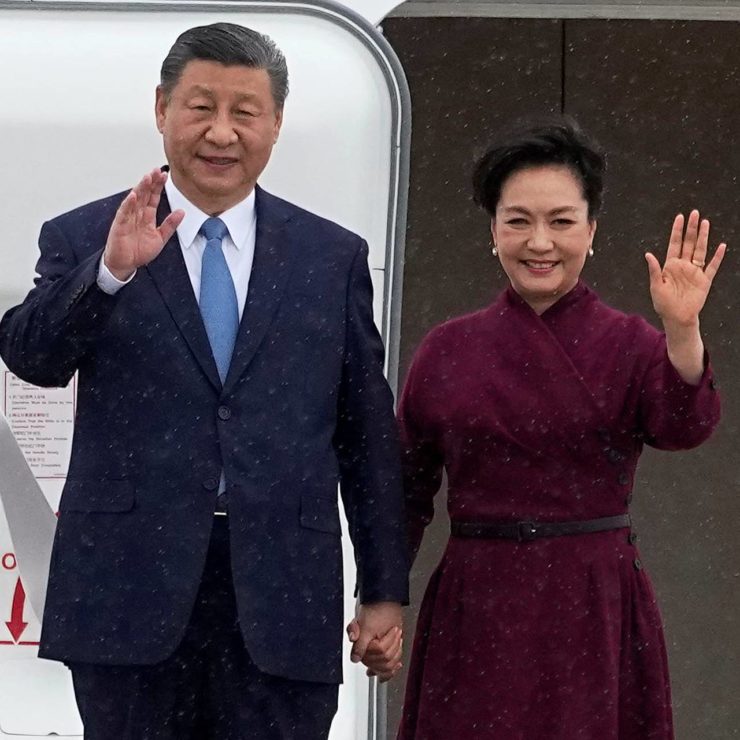
The timing of Biden’s recent tariff hike on Chinese Electric Vehicles (EVs) imported to the US could not have been more impeccable. It was meant to send a clear message not only to the US public and manufacturers but also to US allies. Just when Xi was visiting Europe, Washington announced a 100 per cent increase in tariff on Chinese-made EVs. The cost that this increase will add to China is US$18 billion. While this move has supposedly been taken to protect the US domestic manufacturers, this in reality is part of the larger scheme of “de-coupling” from China – a scheme that Biden inherited from the Trump administration and a scheme that Trump, if re-elected, will continue to follow. Even if Biden gets re-elected, “de-coupling” will intensify, as it now is a firm bi-partisan agenda. ,
Its success, however, also depends on the extent of support the US can get from its global allies, especially those in Europe. For some time, Europe has been ambivalent vis-à-vis this policy. It adopted a “de-risking” policy last year, but its impact – and adoption – has been equally ambivalent and unclear. One of the key reasons for this is that Europe is divided vis-à-vis China. Xi’s recent visit to Europe has further exposed these divisions within the continent, showing how difficult it will be to translate the US bi-partisan support for “de-coupling” into transatlantic support.
At the same time, China is also throwing incentives that would make it a lot harder for European states to ignore. At the heart of Washington’s idea of “de-coupling” is that China is a threat to the (US-led) global order and that engagement with China brings only losses. But China is making moves that project an altogether different picture. For instance, the recent invitation to Serbia to join BRICS+ is a very smart move that seeks to introduce BRICS+ into Europe. This, by its very definition, is a politics of integration rather than disintegration, i.e., “de-coupling”. The message from China is very clear.
While this is not to suggest that this message is being received equally well across the whole continent and that tensions, including those being forced by Washington, are fast disappearing, it is still a fact that Xi signed 18 new agreements during his visit to France, where the Chinese leader met both Macron and the EU President Ursula von der Leyen.
There is little doubt that EU countries have concerns about China’s support for Russia and/or the ‘unlimited friendship’ between Beijing and Moscow. But there is a flip side as well. If European countries like France are concerned about this friendship, they are also concerned about US hegemony and Washington’s desire to not offer Europe any strategic autonomy vis-à-vis key global issues that concern it more than they concern Europe. A cordial, if not perfectly friendly, relationship with China, therefore, works for France. This cordiality was evident, for instance, in the gifts (luxury bottles of cognac) that Macron offered to Xi.
Hungry saw further developments in this regard. The headline of Xi’s visit was the announcement of a two-billion Euro rail project. This announcement is in addition to several other, multi-billion-dollar projects China has acquired in the EU-member state. They include a project to build an EV factory and a US$7.8 billion battery plant. China is already Hungary’s largest investor, with over US$17 billion.
Another strong case exhibiting a strong anti “de-coupling” politics is Germany. Although Xi didn’t visit Germany, Germany’s position was pretty evident when Chancellor Olaf Scholz visited China last month. Germany surely wants more business with China, which is why Olaf pushed for more openness. Concerns aside, the fact is that there are over 5,000 German companies active in the Chinese market. This figure is probably the highest in Europe, which explains why Germany stands to lose the most in the case of “de-coupling” and/or adopting any stringent measures. A Chinese retaliation could hurt Germany’s interests too. This is why, Olaf, who was otherwise invited to attend the Paris meeting with Xi alongside Macron and Ursula, did not attend the meeting. Macron had invited Ursula and Olaf to show a ‘united’ Europe to Xi, but Olaf’s absence showed that this division was indeed real insofar as it has been – and continues to be – a challenge for Europe to come up with one strategy vis-à-vis China. While it has been a challenge to develop a common policy across Europe, developing a united, transatlantic unity is even more difficult.
In Serbia, Xi’s visit coincided with the 25th anniversary of NATO’s bombing of the Chinese Embassy. The message that came out of the visit was logical: “ironclad friendship” between China and Serbia. But it was the same message that Xi delivered to the rest of the countries he visited. The message was delivered not only to the relevant political elites but to the general public as well. Xi delivered this message through his articles published in local newspapers of every country he visited. That Xi talked directly to the public shows a Chinese intent on reinvigorating its image that has, thanks to Washington’s propaganda, been damaged as a state bent upon wreaking havoc across the world.
The message was potent in the sense it also sought to counter Europe’s “de-risk” policy vis-à-vis China. Xi emphasised common interests rather than any potential risks that China might be posing to the people of Europe. The extent to which this message will be well received in Europe is, however, a moot question. A crucial factor that will continue to mediate possibilities of positive reception is Washington’s continuous propaganda and its aggressive steps vis-à-vis China. But Xi’s policy remains to counter this propaganda as much as possible and push for more integration, even if it involves addressing some of Europe’s concerns vis-à-vis more access to the Chinese market.
Salman Rafi Sheikh, research-analyst of International Relations and Pakistan’s foreign and domestic affairs, exclusively for the online magazine “New Eastern Outlook”
